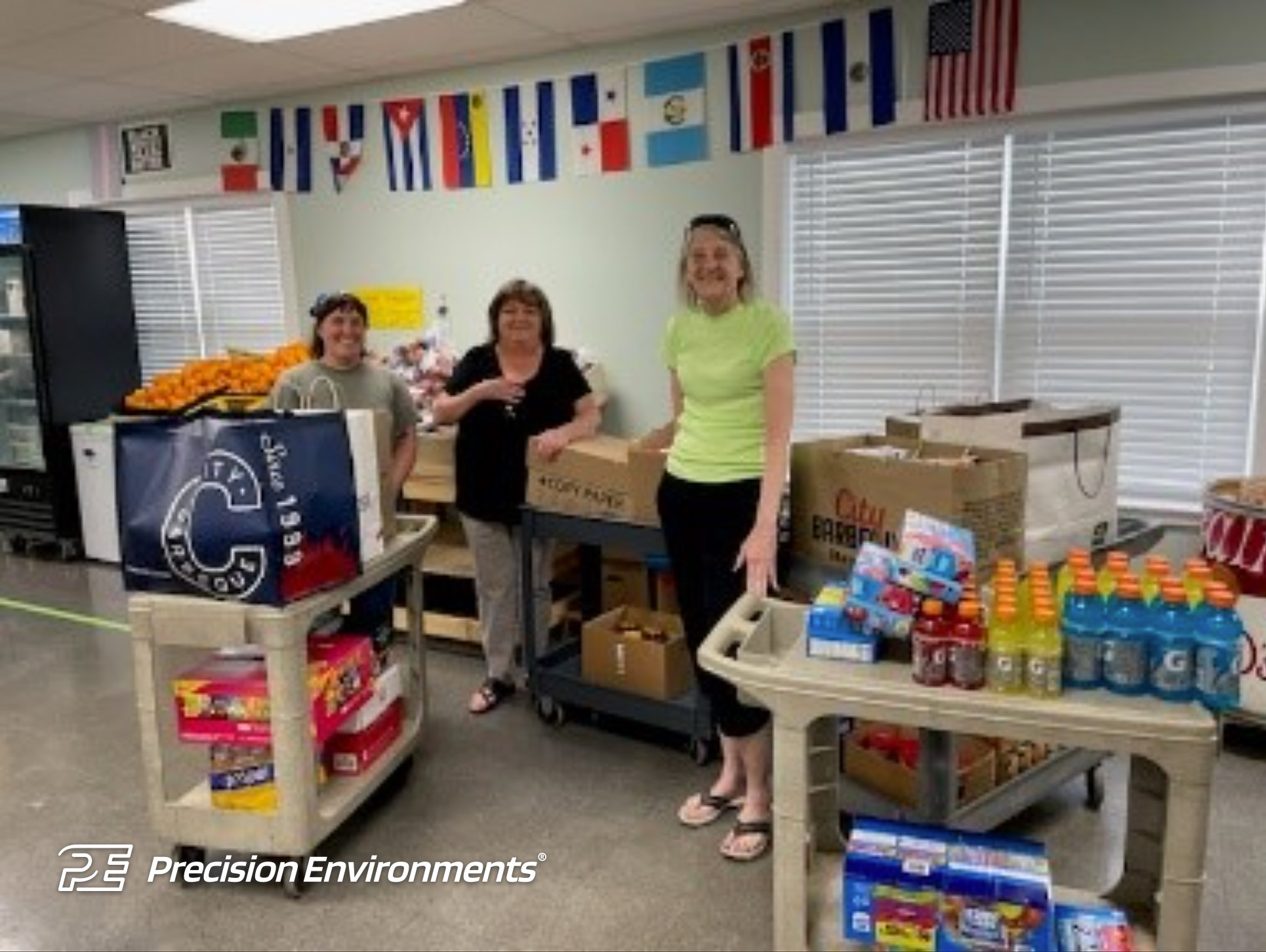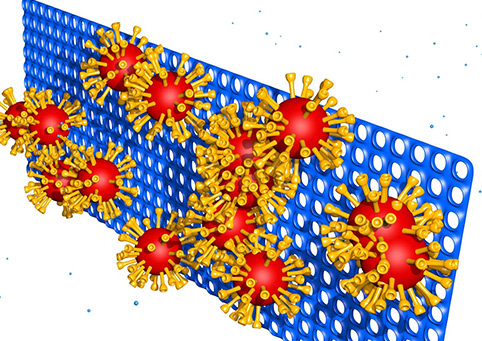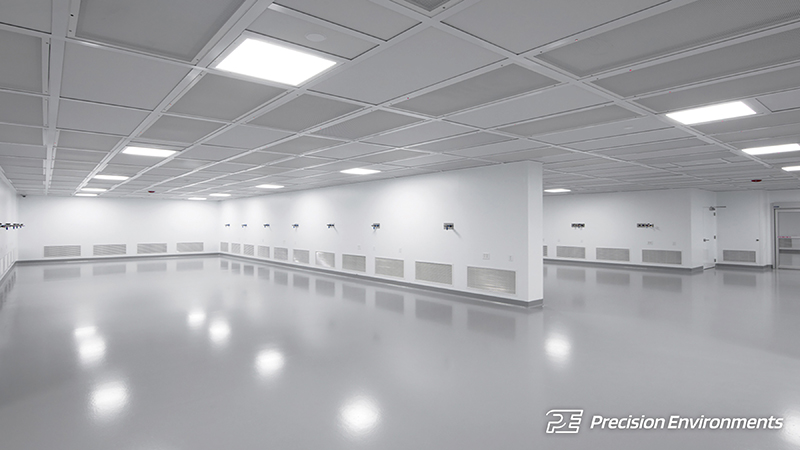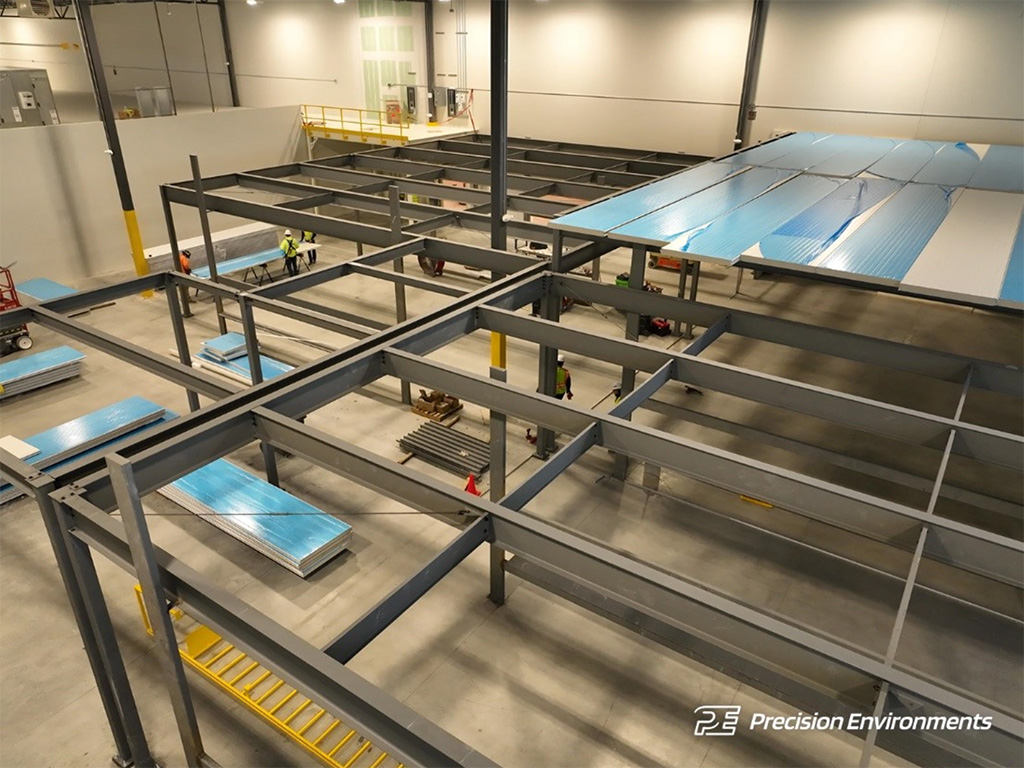Cleanroom Flooring Systems
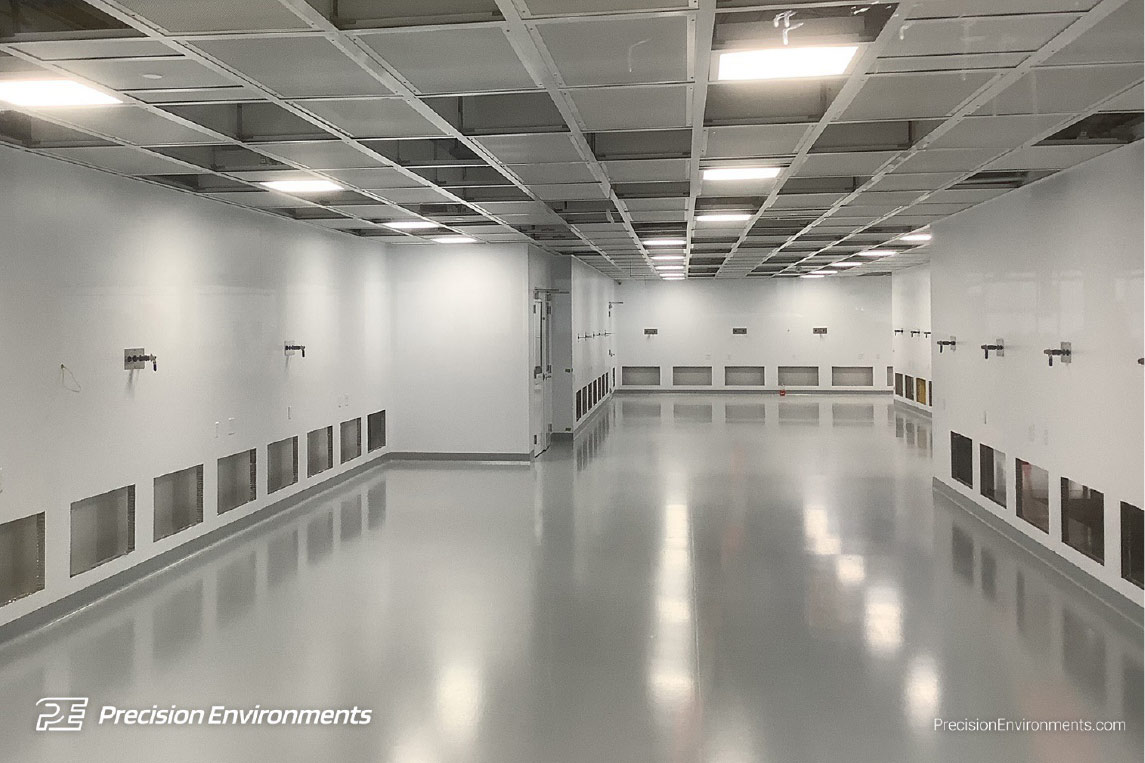
What Is the Difference Between Vinyl and Epoxy Flooring Systems?
Both vinyl and epoxy flooring systems are designed to provide a smooth, low-pile surface that resists the accumulation of dust and other contaminants. However, there are the key distinctions to consider:
- Material Composition: Vinyl flooring in cleanrooms is typically made of homogeneous or heterogenous PVC. It consists of multiple layers, including a wear layer and a backing layer. Epoxy flooring, on the other hand, is a seamless and self-leveling coating composed of resin and hardener, often based on epoxy or other polymers.
- Installation: Both vinyl and epoxy flooring can be installed in cleanrooms, but the installation processes differ. Vinyl flooring is commonly available as tiles or sheets that are glued down to the subfloor. Epoxy flooring, on the other hand, requires a multi-step installation process involving surface preparation, primer application, and the application of epoxy coating, which is then allowed to cure and harden.
- Seamlessness: Epoxy flooring offers a seamless surface without any joints or seams, which is advantageous for cleanrooms. It eliminates crevices where dirt, particles, or contaminants can accumulate, making it easier to clean and maintain a high level of cleanliness. An epoxy cove is often used to create a rounded transition between the floor and the wall. This rounded design, also known as a cove base, helps eliminate corners or seams where dirt, dust, or other contaminants can also accumulate. Vinyl flooring is often seamless or has welded seams to prevent dirt and contaminant buildup in the gaps. However, through wear and tear, these seams can potentially harbor particles or bacteria.
- Chemical Resistance: Epoxy flooring is highly resistant to chemicals, making it suitable for environments where harsh chemicals may be used for cleaning or where there is exposure to chemical spills. Vinyl flooring also has some chemical resistance, but it may not be as robust as epoxy in this regard. Depending on the specific requirements of the cleanroom, the chemical resistance of the flooring system becomes an important factor to consider.
- Durability and Performance: Epoxy flooring is known for its exceptional durability, high compressive strength, and resistance to impacts and abrasions. It can withstand heavy equipment, foot traffic, and mechanical stress, making it suitable for cleanrooms that experience significant activity. Vinyl flooring is also durable, but it may be more prone to scratches, tears, or indentations depending on the quality and thickness of the wear layer.
- Cleanability: Both vinyl and epoxy flooring can be cleaned effectively, but the seamless nature of epoxy flooring provides an advantage in cleanrooms. Epoxy flooring’s smooth surface enables easier and more thorough cleaning, preventing the accumulation of contaminants. Vinyl flooring, with its seams and joints, may require additional care and attention during cleaning to ensure that no particles or pathogens get trapped in the seams.
- Electrostatic Dissipative (ESD) Properties: In certain cleanroom environments, where electrostatic discharge can be a concern, specialized vinyl and epoxy flooring systems with ESD properties are available. These floorings help to dissipate static charges, protecting sensitive equipment or electronics from damage. Both vinyl and epoxy flooring options offer ESD versions, but the specific requirements of the cleanroom will determine which system is most suitable.
Considering the seamless nature, chemical resistance, durability, and cleanability, epoxy flooring is often considered a preferred choice for cleanrooms that demand high levels of cleanliness and sterility in the pharmaceuticals, electronics, aerospace, automotive, and medical device manufacturing industries. A vinyl flooring system is a popular option in industries such as pharmaceuticals, biotech, and scientific research due to its durability, ease of maintenance, and chemical resistance.
It is crucial to consult with your cleanroom experts at Precision Environments to select the appropriate flooring system based on the specific requirements and regulations of your cleanroom facility.
Contact our Cleanroom experts to discuss your cleanroom flooring systems needs.

